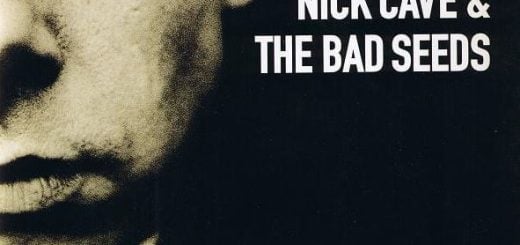The Weeping Song by Nick Cave & The Bad Seeds Lyrics Meaning – Tapping into the Wellspring of Universal Sorrow
Lyrics
And see the women weeping there
Then go up into the mountains
The men, they are all weeping too
Father, why are all the women weeping?
They are all weeping for their men
Then why are all the men there weeping?
They are weeping back at them
This is a weeping song
A song in which to weep
While all the men and women sleep
This is a weeping song
But I won’t be weeping long
Father, why are all the children weeping?
Oh, they are merely crying son
Oh, are they merely crying, father?
Yes, true weeping is yet to come
This is a weeping song
A song in which to weep
While all the little children sleep
This is a weeping song
But I won’t be weeping long
Oh, father tell me, are you weeping?
Your face it seems wet to touch
Oh, then I’m so sorry, father
I never thought I hurt you so much
This is a weeping song
A song in which to weep
While we rock ourselves to sleep
This is a weeping song
But I won’t be weeping long
No, I won’t be weeping long
No, I won’t be weeping long
No, I won’t be weeping long
There is a haunting beauty in the lamentations that echo through ‘The Weeping Song’, a mournful ballad by Nick Cave & The Bad Seeds that has intrigued and mesmerized audiences since its release. The song, a dialogue between a father and son, explores the depths of human sorrow, each verse a layer deeper into the shared experience of loss and emotional pain.
Interpreting the often ambiguous poetry of Nick Cave requires not just a literal understanding but an attunement to the emotional frequencies vibrating within his words. ‘The Weeping Song’ is a masterclass in this regard, challengingly straightforward in its title yet richly complex in its narrative structure and thematic resonance.
A River of Sorrow in a Sea of Tears: Inside the Chorus
Cave cleverly uses the recurring chorus to anchor the shifting scenes of weeping throughout the song. The seemingly simple lines, ‘This is a weeping song / A song in which to weep,’ serve as a canvas, allowing listeners to project their personal grief onto the universal backdrop. Each chorus is a refrain that offers no solace, no answers, just the acknowledgement that weeping, an intrinsic human response to sadness, is both an act of release and a shared expression of pain.
Moreover, the chorus evolves with the narrative, subtly changing its closing line – ‘But I won’t be weeping long’ – instilling a nuanced sense of temporary despair that may eventually pass, or alternatively, a denial of vulnerability, a bravado in the face of overwhelming emotion.
Interrogating the Cycle of Despair: Dialogue Between Generations
Through the exchange between father and son, Nick Cave navigates the cycle of weeping that afflicts the women, men, and children in the song. The persistent questioning by the son highlights the naivety of youth grappling to understand the complexities of adult emotions. The father’s responses reveal a cyclical pattern of weeping in response to each other’s sorrow, suggesting an inescapable shared destiny of grief.
The intergenerational dialogue also hints at the inevitability of becoming acquainted with grief. The father implies that what the son perceives as true suffering is just a prelude to the harsher realities of the world, an ominous foreshadowing of the emotional trials that lie ahead.
Unearthing the Hidden Meaning: The Inescapable Human Condition
While ‘The Weeping Song’ can be read as a meditation on grief, beneath the literal interpretation lies a deeper meaning about the human condition. The universality of weeping across genders and generations speaks to the shared burden of existence. It is a binding thread that suggests empathy, interconnectedness, and the collective consciousness of humanity.
The hidden meaning lies in the recognition that weeping is an intimate yet collective experience – a communal rite that unites people across the artificial divides of society. It is in this catharsis that Cave brings forth a silver lining, a sense of unity that emerges from acknowledging and sharing our deepest sorrows.
Haunting Melodies and the Echoes of Desolation
Music, often more so than words, has the potency to evoke emotion. The arrangement of ‘The Weeping Song,’ with its somber melodies and stirring vocals, creates an atmosphere thick with melancholy. Cave’s voice, both as the father and son, carries a weight that transcends the lyrics, turning the song itself into an audible weep that listeners can’t help but empathize with.
The instrumentation – with a steady rhythm suggestive of a funeral march – complements the despairing tone, allowing for a fully immersive, emotive experience. The musical landscape of the song paints a picture of desolation that words alone could not convey, a testament to The Bad Seeds’ ability to craft atmospheric narrative through sound.
Memorable Lines That Haunt the Psyche: ‘True Weeping is Yet to Come’
There are lines in songs that have the raw power to stay with us long after the melody fades, and ‘The Weeping Song’ is replete with such lines. Perhaps one of the most chilling is ‘Yes, true weeping is yet to come,’ which serves as a prophetic warning of sorts, and an acknowledgment that despite the current sorrow, an even greater depth of emotion remains untapped.
This line encapsulates the song’s essence, striking at the heart with its resonance. It suggests that while the characters weep, their tears are just the surface of deeper torrents of grief yet to be unveiled. In these words, Cave twines the dread of anticipation with the grim acceptance of the inevitable, crafting a memorably haunting motif.








